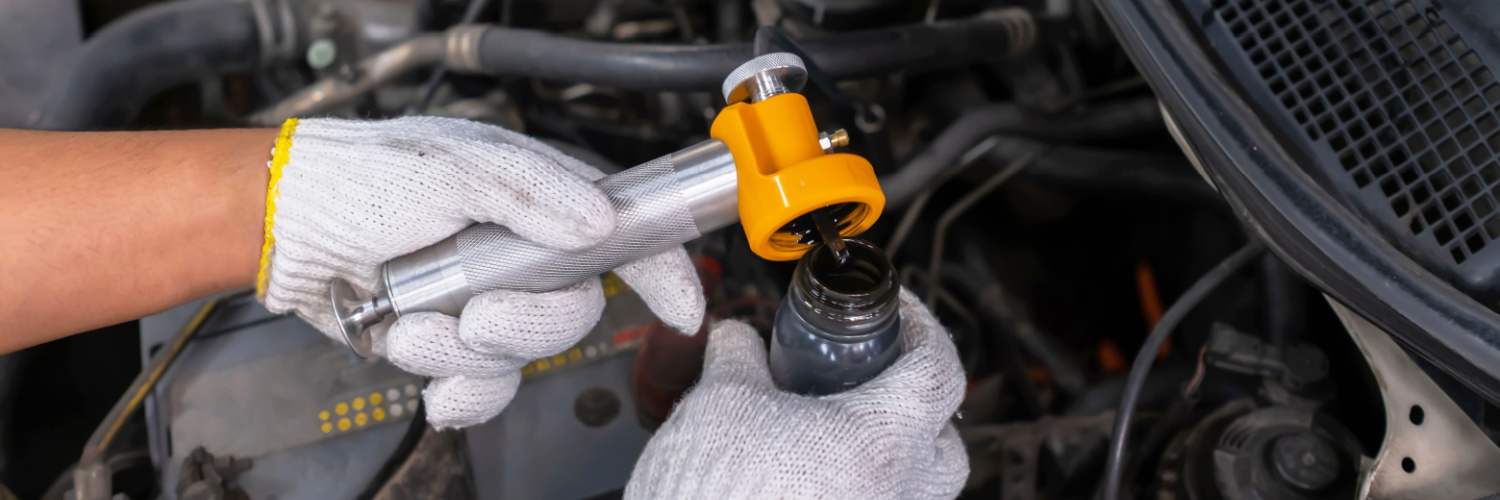PCV Valve Service in Live Oak, TX

What Is a PCV Valve?
A PCV (Positive Crankcase Ventilation) valve is an essential component of your vehicle’s emission control system. It is designed to regulate the flow of gases between the crankcase and the intake manifold. The PCV valve maintains the proper balance of air and fuel mixture in the engine. It also prevents the buildup of harmful gases and vapors inside the engine.
The PCV valve operates on the principle of vacuum pressure. It uses an engine vacuum to draw fresh air into the crankcase, which helps remove blow-by gases, moisture, and other byproducts of combustion. These gases are then recirculated back into the engine, where they can be burned more efficiently.
What Happens When the PCV Valve Breaks?
When the PCV valve breaks or becomes clogged, it can lead to several problems:
Increased Engine Wear: A faulty PCV valve can disrupt the proper airflow in the crankcase, causing increased pressure. This pressure can lead to oil leaks, engine seal failure, and increased wear on engine components.
Poor Fuel Efficiency: A malfunctioning PCV valve can disturb the air-fuel mixture in the engine, leading to a rich or lean mixture. This can result in decreased fuel efficiency and increased fuel consumption.
Engine Performance Issues: A clogged or stuck PCV valve can cause rough idling, stalling, and overall poor engine performance. The engine may experience a loss of power, hesitation during acceleration, or misfire.
Excessive Oil Consumption: When the PCV valve is not functioning correctly, it can result in excessive oil consumption. The blow-by gases that are supposed to be recirculated may mix with the oil, causing it to become diluted and leading to increased oil consumption.
How Often Should the PCV Valve Be Changed?
The frequency of PCV valve replacement can vary depending on the vehicle’s make, model, and driving conditions. As a general guideline, it is recommended to replace the PCV valve every 30,000 to 50,000 miles or as specified by the vehicle manufacturer. However, it’s important to consult your vehicle’s owner’s manual or a qualified technician for specific recommendations.
How Do You Know When the PCV Valve Is Faulty?
There are several signs that indicate a faulty PCV valve:
Increased Oil Consumption: If you notice that your vehicle is consuming more oil than usual, it may be a sign of a bad PCV valve. The improper functioning of the valve can lead to oil leaks or excessive oil burning.
Rough Idle: A malfunctioning PCV valve can cause rough idling or an unstable engine idle speed. You may experience vibrations or fluctuations in the engine speed when the vehicle is at a stop.
Check Engine Light: A faulty PCV valve can trigger the check engine light to illuminate. This can be detected by a diagnostic scan, which will reveal specific trouble codes related to the PCV system.
Excessive Smoke: If you observe excessive smoke coming from the exhaust, particularly when accelerating, it could indicate a problem with the PCV valve. The faulty valve can cause oil to be burned in the combustion chambers, resulting in smoke emissions.
Book a PCV Valve Replacement in Live Oak, TX at Larson’s Automotive
At Larson’s Automotive in Live Oak, TX, we offer professional PCV valve replacement services to ensure the proper functioning of your vehicle’s emission control system. Our experienced technicians will inspect your PCV valve, diagnose any issues, and replace it if necessary. Contact us today to schedule an appointment or for any other automotive needs you may have.

